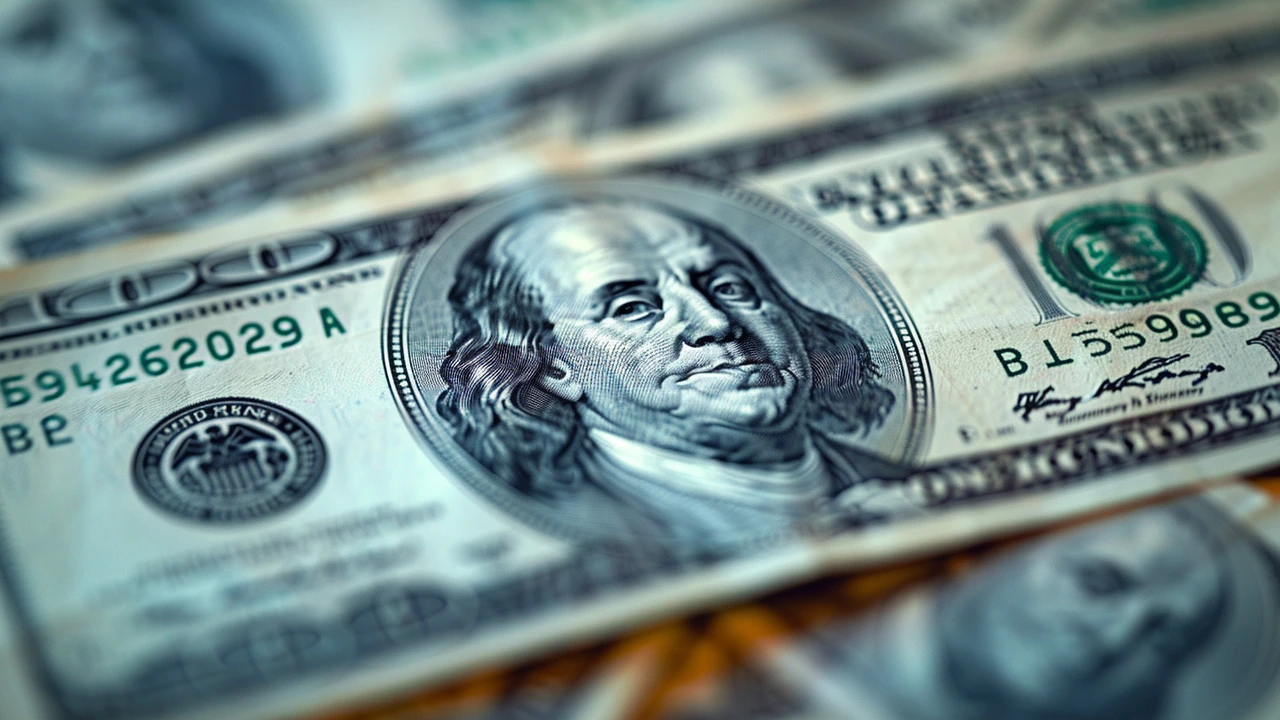Overview of the Rising U.S. Dollar in Global Economy
The U.S. dollar has shown significant strength in recent weeks, edging closer to its highest position since November 2022. The driving force behind this surge is primarily the latest inflation data that surpassed economists' forecasts, leading investors to recalibrate their expectations regarding the Federal Reserve's approach to interest rates. While the dollar's rise signals robustness in parts of the U.S. economy, it simultaneously poses challenges and strategic adjustments for global markets and domestic fiscal policy.
Inflation worries have been central in stirring anxieties among investors who see the data as a determinant for the Federal Reserve's next moves. Traditionally, when inflation rates exceed the targets set by the Federal Reserve, an increase in interest rates follows, which usually strengthens the dollar against other currencies. However, in the current scenario, the anticipation of rate adjustments has caused market dynamics that favour the U.S. currency even before any official action by the Fed.
The Impact on Other Major Currencies
The ripple effects of a stronger dollar are visible across several major currencies. The euro, in particular, has weakened, alongside the sterling and the Swiss franc. This decline is partly attributed to the comparative move investors make towards the dollar when U.S. economic indicators suggest stronger-than-expected performance. The Japanese yen, which has dipped to levels not seen since the last suspected governmental intervention, hints at potential moves by Japanese authorities to stabilize or strengthen their currency amidst this dollar rise.
The situation places significant attention on any upcoming statements from the Federal Reserve and its chairman, Jerome Powell. Should the Fed indicate an inclination to maintain high-interest rates, or hint at further rate hikes, the dollar could see continued support or even further gains. Meanwhile, market participants will also be closely monitoring the Bank of Japan, looking for signs of direct intervention, which involves selling their own currency in exchange for foreign currencies in order to alter exchange rates and manage economic impacts from a weakening yen.
Global Economic Implications
The exchange rate shifts come at a critical time as economies worldwide continue to navigate the uncertainties brought about by the COVID-19 pandemic, geopolitical tensions, and internal financial pressures. A stronger dollar impacts global trade dynamics, as it affects export pricing, overseas earnings, and debt servicing costs for countries with dollar-denominated debts. For emerging markets, particularly, the strengthening of the dollar could exacerbate financial vulnerabilities, as their debt burdens become more expensive to service internationally.
Additionally, central banks around the world might find themselves having to adjust their monetary policies to counteract the effects of the dollar's strength on their economies. Such interventions could range from altering interest rates to directly intervening in currency markets, similar to what is suspected in Japan. Each of these measures has significant implications for domestic and global economic stability.
Conclusion
As the U.S. dollar continues to climb close to its yearly high amid inflationary pressures, understanding the interconnectedness of global markets becomes crucial. The adjustments in the Forex markets and the potential interventions by central banks like the Federal Reserve and the Bank of Japan will play a pivotal role in shaping economic policies and market reactions through the coming months. Stakeholders, from policymakers to investors and from large corporations to everyday consumers, will need to stay informed and agile in their strategies to navigate this complex financial landscape effectively.
